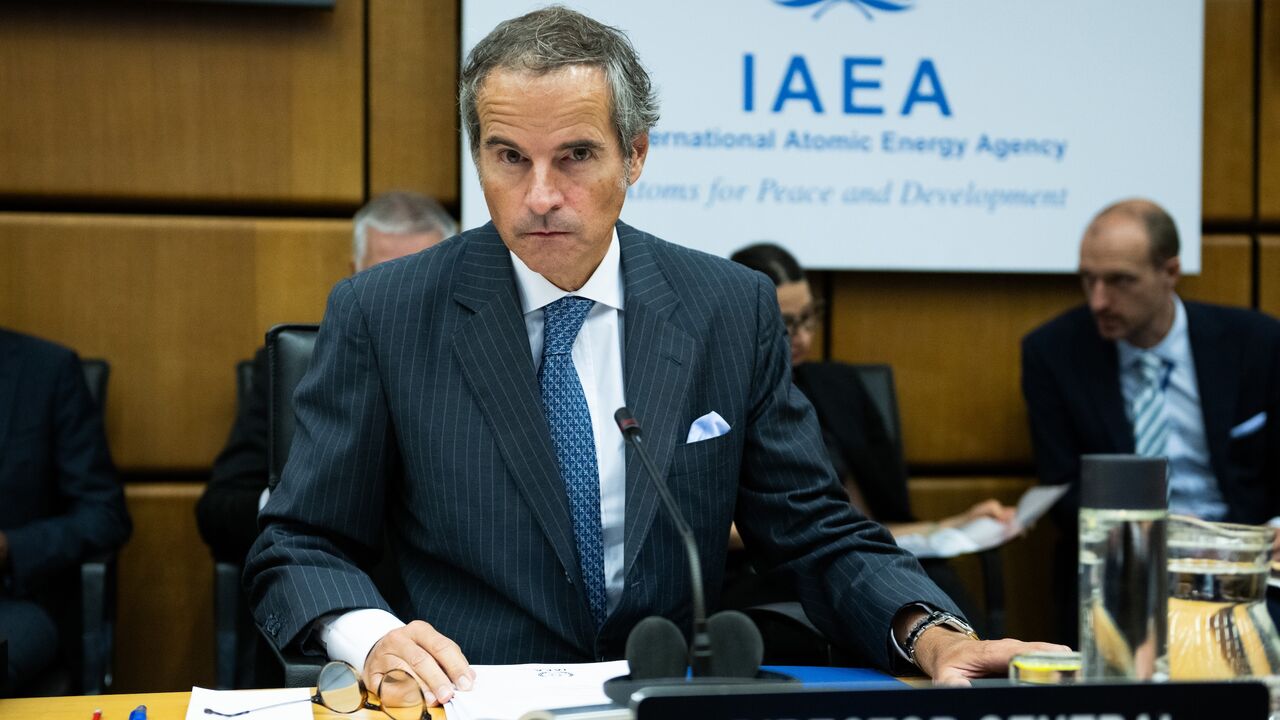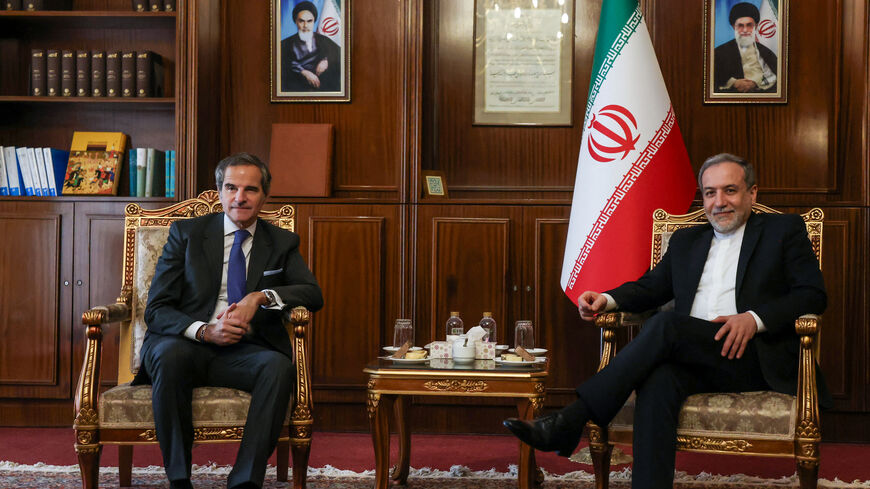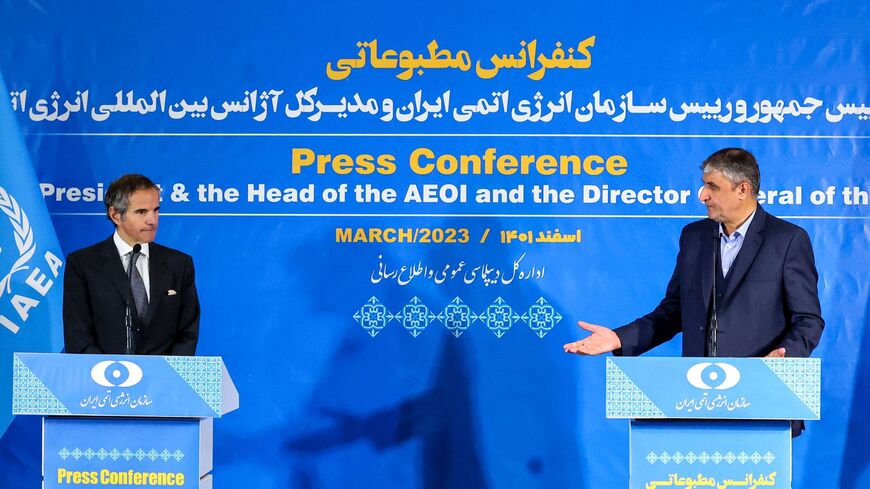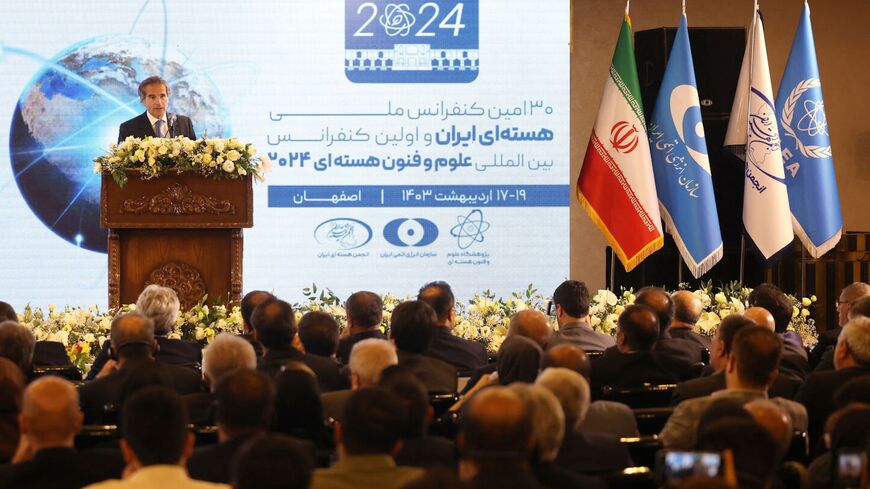In first since Trump win, nuclear watchdog chief Grossi arrives in Iran for talks
As Iran braces for another Trump presidency, which last time saw the dissolution of the Iran nuclear deal, the director of the UN's nuclear watchdog agency holds talks in Tehran regarding the Iranian nuclear program.

Rafael Grossi, director general of the International Atomic Energy Agency (IAEA), the United Nations’ nuclear watchdog agency, arrived in Tehran on Wednesday as the watchdog has shown increasing concern about Iran's lack of cooperation.
Iran’s state news agency, IRNA, aired a video clip of Grossi in Tehran speaking with Behrouz Kamalvandi, the spokesperson for the Atomic Energy Organization of Iran (AEOI).
Just a day before his meetings in Iran, Grossi told Reuters on the sidelines of the COP29 climate summit in Azerbaijan, “I am far from being able to tell the international community ... what is happening [with regard to Iran’s nuclear development] ... they [Iran] have to help us to help them to a certain extent.”
The IAEA, with Grossi at its helm, has over the past few months pushed for increased cooperation and transparency from Iran — including increased monitoring at Iranian nuclear sites and demanding explanations for traces of uranium found at undeclared sites — but has been faced with a largely obstinate Iran.
On Oct. 31, Iran’s deputy foreign minister for legal and international affairs, Kazem Gharibabadi, met with Grossi in Vienna. Gharibabadi said that Grossi’s upcoming visit to Tehran would mark the “continuation of cooperation between the Islamic Republic and the IAEA.”
In another interview in Azerbaijan he added, "There has been a bit of a dire straits dynamic with Iran that we want to go beyond.”
With the reelection of Donald Trump, who has tapped a slew of Iran hawks for top foreign policy positions, including Marco Rubio as secretary of state and John Ratcliffe as CIA director, ensuring Iran cooperates with Western-aligned international bodies like the IAEA, let alone the United States, may prove to be increasingly difficult.
In 2018, Trump withdrew from the Obama-era 2015 Iran nuclear deal, or the Joint Comprehensive Plan of Action (JCPOA), after which Iran ramped up its nuclear development.
An IAEA report in August found that Iran at that point had over 350 pounds of 60% enriched uranium — just a step away from the nuclear weapons-grade enrichment level of 90%. Iran has consistently maintained that its nuclear program is purely peaceful.
In September, Grossi told Al-Monitor's Elizabeth Hagedorn that "without implementation of the JCPOA, the Iranian program has been on turbocharge."
After his withdrawal from the JCPOA, Trump implemented the so-called maximum pressure campaign against Iran, which slapped further sanctions on Iran in an attempt to strong-arm the country into a renegotiation of the deal that Trump claimed would be more advantageous to the United States.
Trump in September stated that “we have to make a deal” with Iran but has yet to provide any further detail on what such a deal might look like.
President-elect Trump also maintains a close relationship with Israeli Prime Minister Benjamin Netanyahu, who hopes that Trump's reelection could mean US support for an Israeli strike on Iranian nuclear infrastructure following an escalating tit-for-tat exchange between Israel and Iran.
Next week, Grossi will convene an IAEA board of governors meeting in which Iran will likely be high on the agenda, with the board member countries weighing an increase in pressure on Iran.








